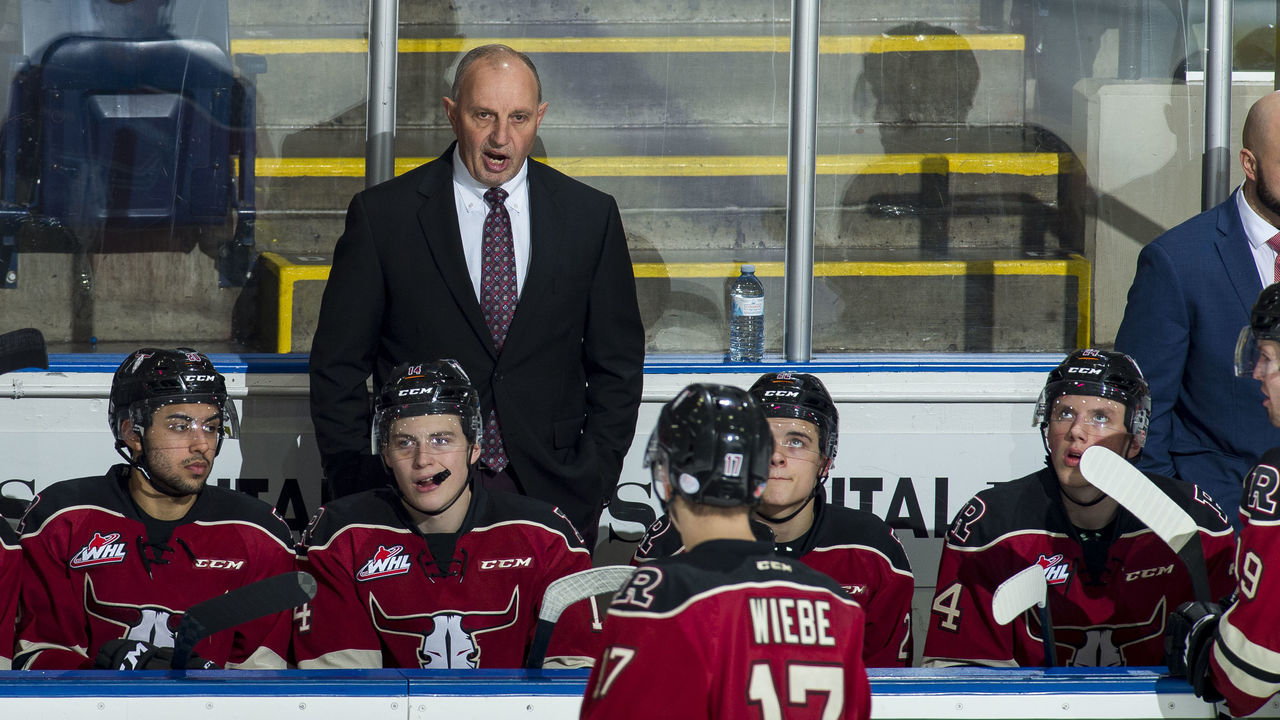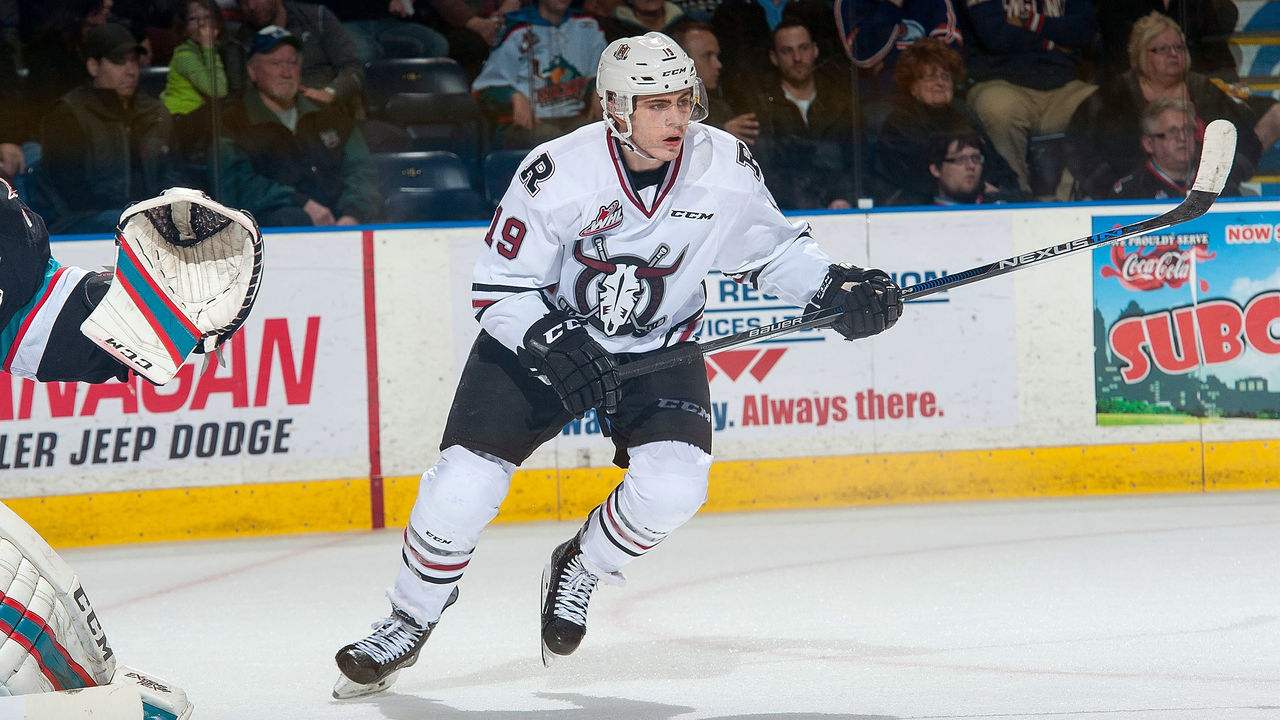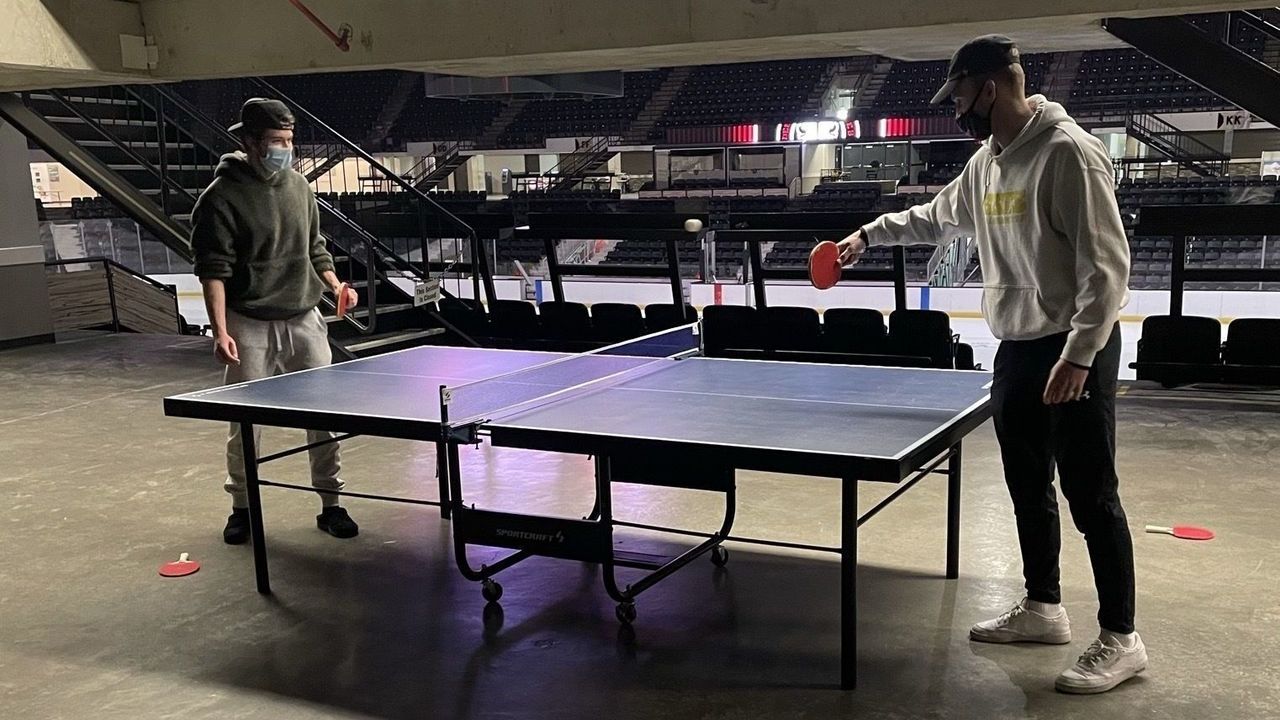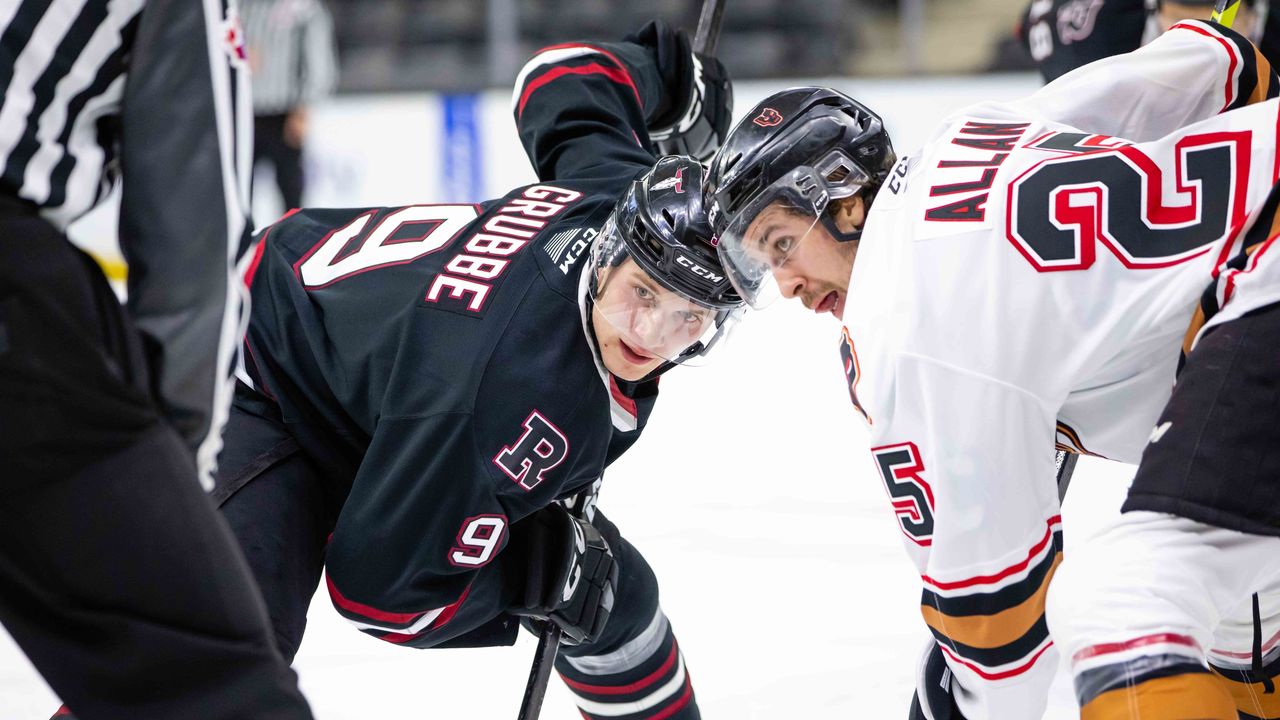How the Red Deer Rebels found unity, opportunity by living at their rink
From the sky-box suite where he sleeps at the Westerner Park Centrium arena, Josh Tarzwell can look upon the expanse of his life as a 21-year-old junior hockey player.
Below him are the Red Deer Rebels' primary net and home bench. At the far end of the rink is the Rebels' meal room, where heaps of eggs and toast are devoured daily at 8:30 a.m. One recent morning, Tarzwell answered a phone call, peered down to the concourse level, and saw most of his team clustered around two ping-pong tables - one donated by his family, the other freshly purchased to satisfy demand.
"I can count probably 15 guys on two tables waiting to play," Tarzwell said.

Tarzwell was born and raised in Red Deer, the Alberta oil hub that's equidistant from Edmonton and Calgary. Normally, he resides 15 minutes from the Centrium, where the Rebels have hosted Western Hockey League games for close to three decades. COVID-19 has no regard for norms. Since mid-February, Tarzwell - an alternate captain and one of three overage players on the roster - and his Rebels teammates have bunked in suites with ice views, choosing to go to unique lengths to be able to participate in a 2021 season.
For exactly a year now, the pandemic has roiled Canada's major junior hockey scene. The Ontario Hockey League has yet to get government permission to drop the puck this season. The Quebec Major Junior Hockey League opened play last October, pressed pause from Nov. 29 to Jan. 22, then resumed by sending clubs into a series of protected hubs; teams have played as few as 14 games and as many as 34.
Out west, the WHL imitated the NHL's regional format to split into U.S., British Columbia, Alberta, and Saskatchewan-Manitoba divisions. Starting soon in B.C. and Saskatchewan, games will be played out of hubs for a couple of months. In Alberta, some teams are staying in hotels and postsecondary dorms as they shuttle between their home rink and those of their opponents. Red Deer alone is holed up in a hockey facility.
The Rebels' setup at the Centrium isn't, strictly speaking, a bubble. Team staff members move in and out, though solely between the rink and their homes. Cognizant that mental health matters, the club has made a point of getting the players outside each day - to walk, play catch, or toboggan at the ranch of Brent Sutter, the retired NHL center who is Red Deer's head coach, general manager, president, and owner.

Mostly, though, the players are confined to the 7,000-seat barn where Ryan Nugent-Hopkins, Matt Dumba, and Darcy Kuemper once starred, separated from outside society but united in the experience. The Centrium has enough suites to house the 26-man squad. Parents, suite holders, arena management, Red Deer bureaucrats, and fire officials all approved the plan to hunker there for several months. Billet families loaned beds, sharing the consensus that this living arrangement was the Rebels' best option this season.
"It's not a normal situation. But the normalcy is (the players) playing," Sutter said. "Them putting themselves out there for scouts to watch, for teams to see, for their development."
Sutter's Rebels have a record of nurturing junior talent. Jake DeBrusk, Haydn Fleury, and Sutter's son, Brandon, are among the team's active NHL alumni. Martin Hanzal, Dion Phaneuf, Kris Versteeg, and Cam Ward all springboarded from Red Deer into solid pro careers. Brent Sutter, whose tenures with the New York Islanders and Chicago Blackhawks netted him two Stanley Cups and 829 points in 1,111 games, has owned the Rebels since 1999 and coached them to WHL and Memorial Cup titles in 2001.

Recent seasons haven't gone so well. The Rebels haven't won a playoff series since 2016 when they hosted the Memorial Cup and reached the tournament semis. They were on pace to finish 2019-20 well below .500 when COVID-19 nixed their final five games. But last year's team skewed young, and when most of the players finally returned to Red Deer in February, they did so invigorated. On top of canceling hockey for a year, hometown quarantines kept teammates from hanging out in the summer and catching up at training camp on time in the fall.
"These guys are all my best friends. We spend eight months of the year together normally," Tarzwell said. "Being able to (live at the rink) together, it's been a huge weight off my shoulders."
Protocols and routine govern life inside the Centrium. Apart from the Rebels, only Westerner Park complex staff can access the rink, plus select scouts, off-ice officials, and media members on game days. Masks are ubiquitous even in this protected environment, and the Rebels, like all WHL teams, are tested for the coronavirus each Wednesday. Cooks from a local senior-care home prepare three hearty meals daily, but the players - four or five at a time on four-day rotations - serve the food and clean up after the group.
Cheers to Chris Douglas and Zak Smith, architects of today’s breakfast sandwiches! #teamworkmakesthedreamwork pic.twitter.com/sZ8h3cHXJG
— Red Deer Rebels (@Rebelshockey) February 14, 2021
The players' schedule is consistent, Tarzwell said: breakfast first, workouts and study sessions at 10 a.m., lunch at noon, and a 2 p.m. practice that runs for up to two hours. Since this season's 24 games are limited to Fridays, Saturdays, and Sundays, college-style, free time abounds in the interim. A basketball hoop was installed in the Centrium concourse. Meeting rooms have been equipped with couches, TVs, and gaming consoles. Tarzwell brought his ping-pong table from home, and that pastime regularly gets heated.
"In the afternoons, it gets pretty serious," defenseman Kyle Masters said. "If you're losing, you're not a very happy camper during dinner."

By night, before the Centrium lights go dark at 10:30, the players have staged friendly casino competitions and streamed Creed II, Happy Gilmore, and North Division NHL action on the arena jumbotron. These are necessary diversions from their own intense season. The Rebels are 1-2-1 entering this weekend's three-game slate against the Lethbridge Hurricanes, but one line of thinking holds that those first matchups were glorified exhibitions, results being less important than process as skaters tried to shed rust.
That said, only 20 games remain in the sprint to the playoffs, generating the urge to play up to potential ASAP. This impetus is inescapable when you sleep at the workplace. On Feb. 26, at home against the Medicine Hat Tigers in Red Deer's season opener, the Rebels blew a 4-1 lead late in the third period and lost in overtime.
"Definitely not ideal," Tarzwell said. "You come back to your room and you're looking out at the ice. There's really a switch that I've been trying to (flick) where I'm not constantly thinking about hockey. But it can be difficult, I know, for some guys, because you're constantly looking at the ice, thinking about what could have happened."

Obsessing over what-ifs does beat the alternative that might await OHL teams: having to sit out a season that could make, break, or otherwise shape a player's future. Tarzwell, like every twentysomething player in the Canadian Hockey League, will be too old for junior at season's end and in need of a contract to further his pro and NHL ambitions. Masters, who's 17 and eligible for the 2021 NHL draft, is aiming to maximize his stock after a broken ankle sidelined him for all but 24 games as a WHL rookie. Every shift is an audition for the next level.
"Personally, I'm very grateful for this opportunity," Masters said. "But with the shortened season, it just means you've got to come out that much faster. You don't have the time that (prospective draft picks) had in previous years to get it going in the first few games."
The team has sought to preserve or mimic normalcy on other fronts. Staff converted the Centrium's media and scout lounge into a remote classroom for the Rebels' high-school students. Sutter's friends lent him a barbecue, on which the squad has cooked steaks. The Rebels have maintained their standard, pro-casual dress code for home games, the difference being the players don't leave the building afterward to drive into the Prairie night.
Like scores of Canadian communities, Red Deer has suffered from COVID-19. About 500 cases and four deaths have been linked to an outbreak at a local pork processing plant. Proprietor company Olymel closed the plant for a little while in mid-February, months after the outbreak was declared and, incidentally, around the time Rebels camp started. Inside the Centrium, the players stay healthy by respecting the protocols - and by sticking together.

"When you're locked away in a room, which might have been the case if we (weren't at the rink), it could have been a long 90 days. Having this opportunity, we're around the guys lots and we're able to communicate on and off the ice," Masters said.
"For the new guys coming in, this might be the first time they've lived away from home. Us older guys, we made sure they knew that we're always here if they need to talk about more serious stuff. This is a different experience for everyone. We're all just trying to take care of each other."
Beyond the Lethbridge series and three dates with the Edmonton Oil Kings next weekend, the Rebels' schedule has yet to be finalized. Their home games will go down in a building that's seen some hockey history. In 2016, Matthew Tkachuk potted the OT goal there that won the London Knights their latest Memorial Cup. Assuming no bubble is required again, Red Deer and Edmonton will co-host the next world juniors, the tournament where Sutter led Team Canada to gold medals in 2005 and 2006.
Sutter's NHL career spanned 18 seasons, plus five more manning the bench for the New Jersey Devils and Calgary Flames. Famously, five of his brothers, including newly returned Flames coach Darryl, played at the highest level, too. Yet in 2020 and 2021, even this hockey lifer was bound to witness something new. His team's current digs certainly qualify.
"These kids, 30 years from now, they're going to be looking back saying, 'During COVID, to get back playing, we had to stay in the rink,'" Sutter said. "I told them: There's 26 players in the world who are doing this right now."
Nick Faris is a features writer at theScore.
HEADLINES
- McDavid handed match penalty after late scuffle in loss to Canucks
- Report: Canucks were close to Miller trade, deal currently off
- Maple Leafs score 7 unanswered goals to rout Canadiens
- Brunette hopes fiery win vs. Wild will serve as 'defining moment' for Preds
- Jets desperate to get Comrie a win: 'He's battling his heart out for us'